(i) In an isolated system (neither connected to the terminal of a battery nor to any other source of charge e.g each) net charge remains constant.
(ii) From two terminal of a battery or from two plates of a capacitor equal and opposite charges enter or leave.
Question : Two capacitors of capacity 6μFand3μF are charged to 100 V and 50 V separatelly and connected as shown. Now all the three swiches S1S2andS3 are closed.

Which plate (s) form an isolated system .
plate 1 and plate 4 separately
plate 1 and 4 jointly
plates 1 and 3 jointly
plates 2 and 3 jointly
The correct Answer is:D
Step by step video & image solution for (i) In an isolated system (neither connected to the terminal of a battery nor to any other source of charge e.g each) net charge remains constant. (ii) From two terminal of a battery or from two plates of a capacitor equal and opposite charges enter or leave. Question : Two capacitors of capacity 6muF and 3muF are charged to 100 V and 50 V separatelly and connected as shown. Now all the three swiches S_(1)S_(2) and S_3 are closed. Which plate (s) form an isolated system . by Physics experts to help you in doubts & scoring excellent marks in Class 12 exams.
Updated on:21/07/2023Topper's Solved these Questions
- CAPACITORS BOOK - AAKASH SERIESCHAPTER - CAPACITORS EXERCISE - LECTURE SHEET (EXERCISE - III) (LEVEL - II (ADVANCED)) (Integer Type Questions )
3 Videos
- CAPACITORS BOOK - AAKASH SERIESCHAPTER - CAPACITORS EXERCISE - LECTURE SHEET (EXERCISE - IV) (LEVEL - I (MAIN)) Straight Objective Type Questions)
8 Videos
- CAPACITORS BOOK - AAKASH SERIESCHAPTER - CAPACITORS EXERCISE - LECTURE SHEET (EXERCISE - III) (LEVEL - II (ADVANCED)) (More than one correct answer Type Questions )
4 Videos
- ATOMSBOOK - AAKASH SERIESCHAPTER - ATOMSEXERCISE - PRACTICE EXERCISE
21 Videos
- COMMUNICATION SYSTEM BOOK - AAKASH SERIESCHAPTER - COMMUNICATION SYSTEM EXERCISE - LECTURE SHEET (LEVEL - I) (MAIN) (EXERCISE - IV) (Straight Objective & More than one Correct Answer Type Questions)
20 Videos
Similar Questions
Two capacitors of capacity 6μF and 3μF are charge 100V and 50V separately and connected as shown in Now all the three switches S1,S_(2) , and S_(3) are closed.
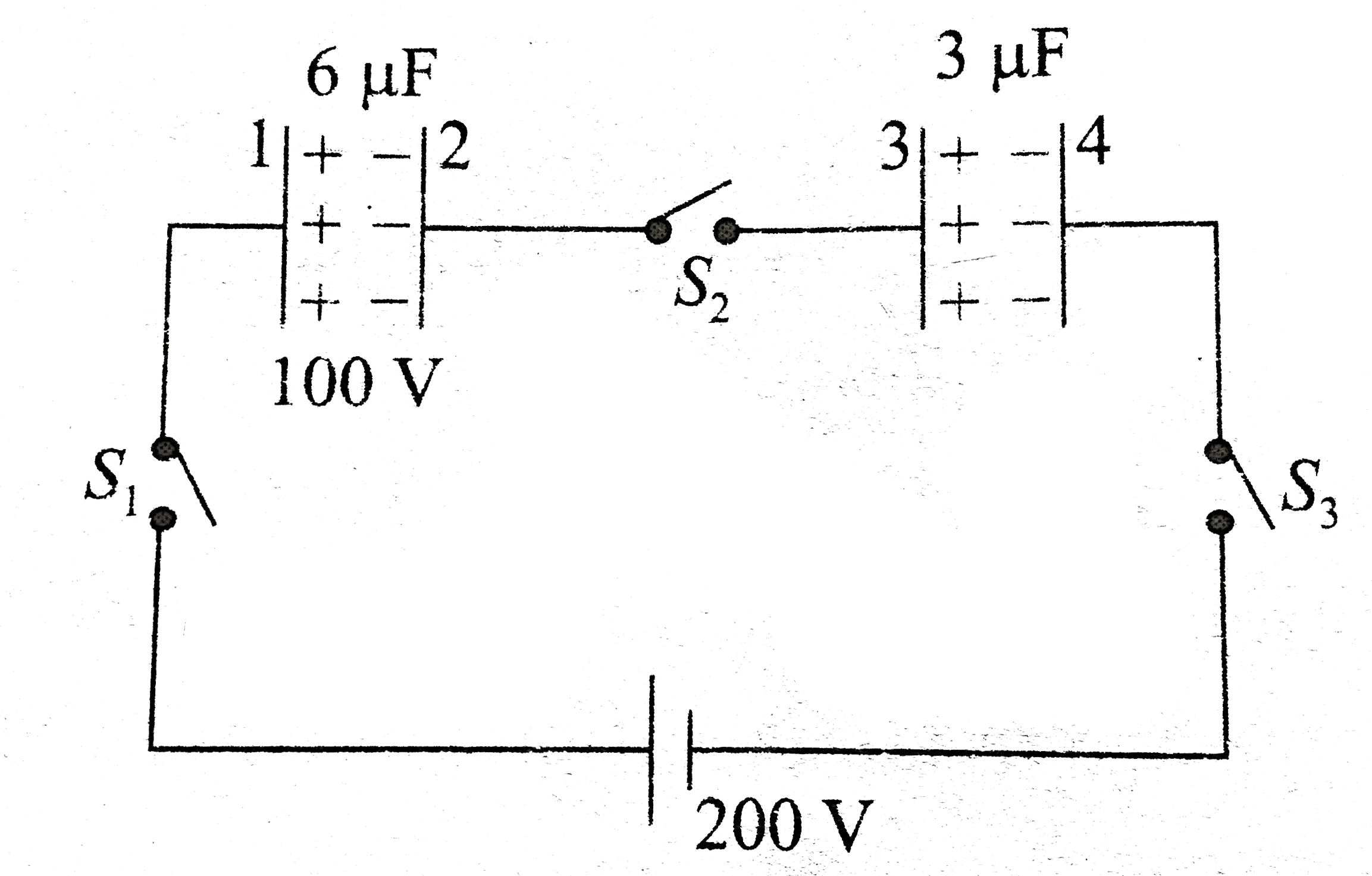
Which plates form an isolated system?
View SolutionTwo capacitors of capacity 6μF and 3μF are charge 100V and 50V separately and connected as shown in figure. Now all the three switches S1,S2, and S3 are closed.
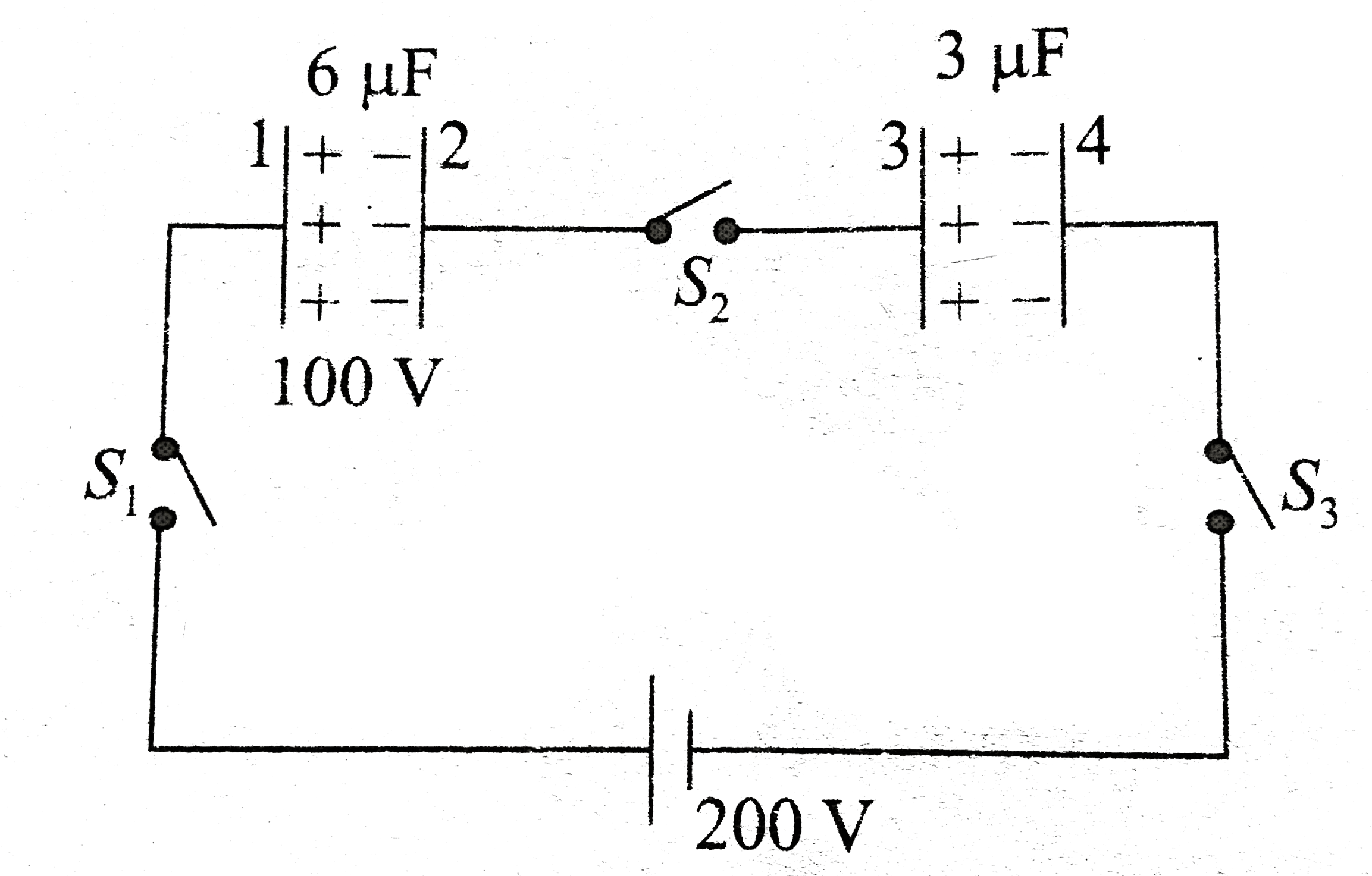
Charge on the 3μF capacitor in steady state willl be.
View SolutionTwo capacitors of capacity 6μF and 3μF are charge 100V and 50V separately and connected as shown in (Fig.4.201.) Now all the three switches S1,S2, and S3 are closed.
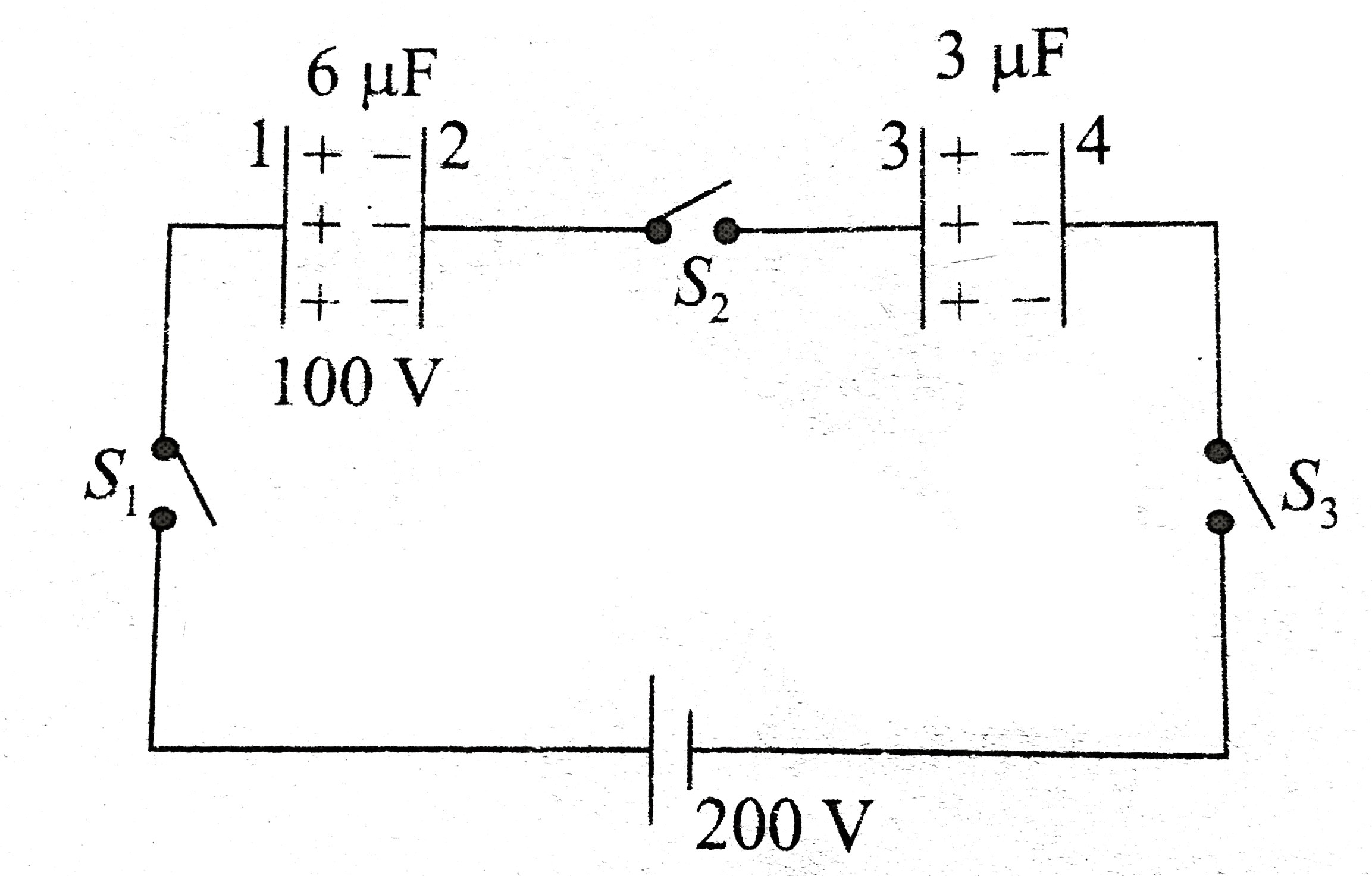
Charge on the 6μF capacitor in steady state will be.
View SolutionTwo capacitors of 2μF and 3μF are charged to 150V and 120V, respectively. The plates of capacitor are connected as shown in the figure. An uncharged capacitor of capacity 1.5μF falls to the free end of the wire. Then
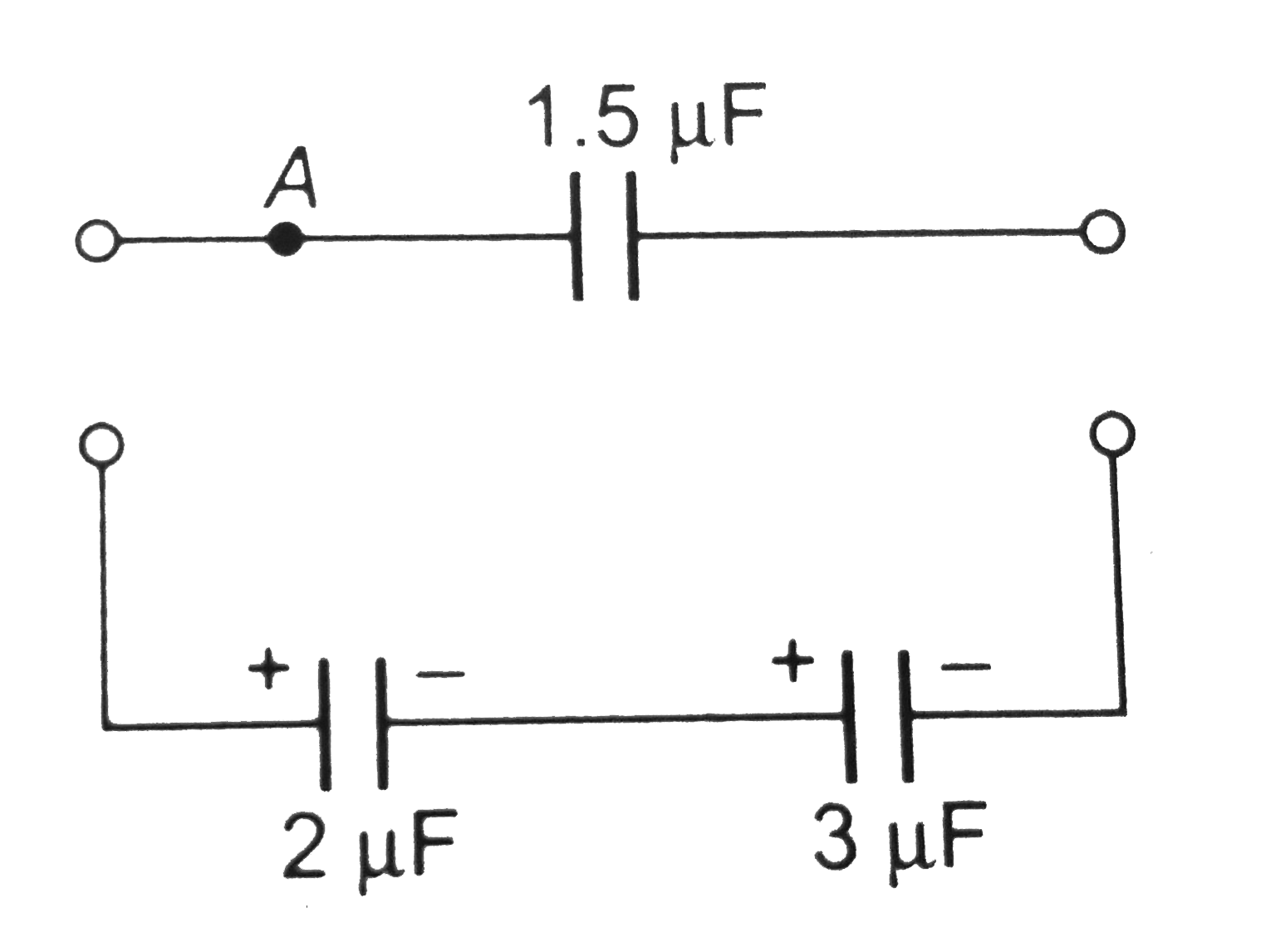
View SolutionTwo capacitors of 2μF and 3μF are charged to 150V and 120V, respectively. The plates of capacitor are connected as shown in the figure. An uncharged capacitor of capacity 1.5μF falls to the free end of the wire. Then

View SolutionIf the two plates of the charged capacitor are connected by a wire, then
View Solution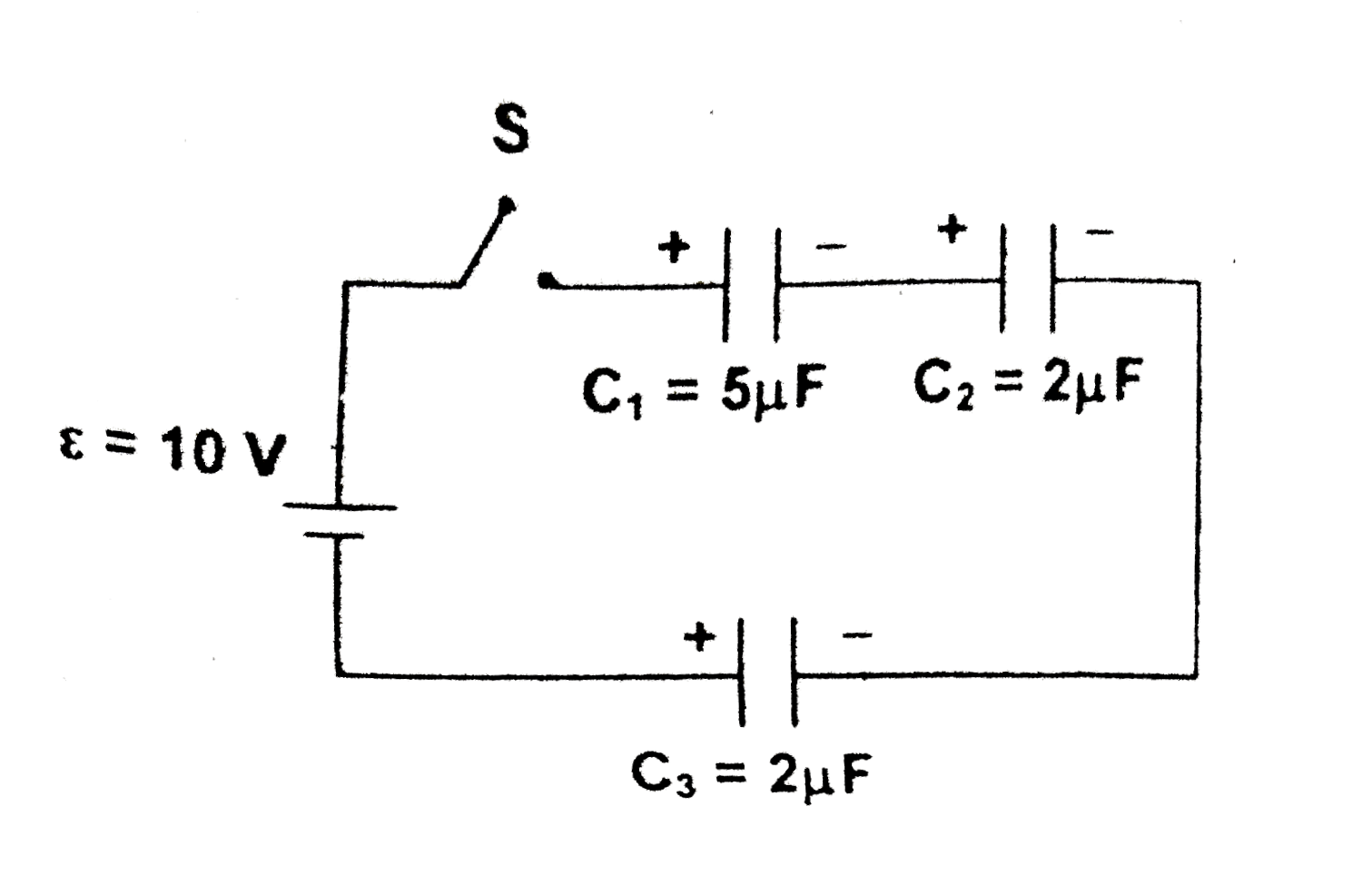
Three capacitors of capacitances 5μF,2μF and 2μF are charged to 20 V, 30 V and 10 V respectively and then connected in the circuit with polarities as shown. The magnitude of charge flown through the battery after closing the switch S is
View SolutionTwo capacitors of 10μF and 20μF are connected in series with a 30V battery. The charge on the capacitors will be, respectively
View SolutionA 2μF capacitor is charged to 100V, and then its plates are connected by a conducting Wire. The heat produced is .
View SolutionThree capacitors C1=3μF,C2=6μFandC3=10μF are connected to a 50 V battery as shown in the figure below:
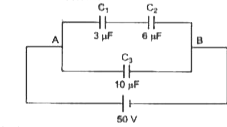
Calculate :
The charge on C1
View Solution
